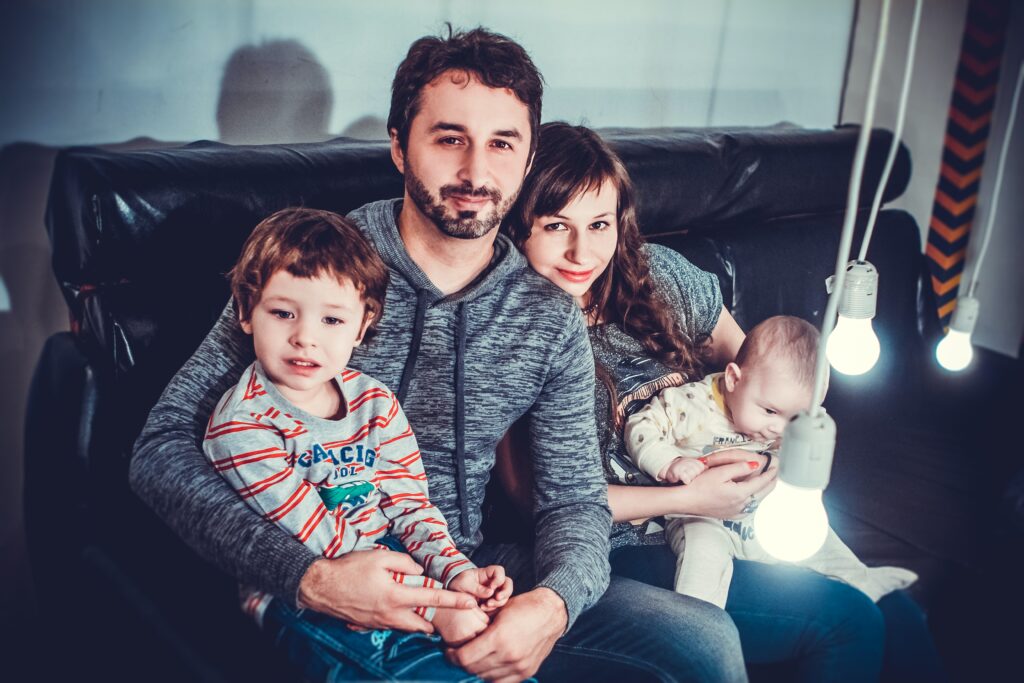Depression is sometimes referred to as an invisible illness because it’s not always easy to spot. Sometimes depression is a messy room, skipping meals, or constantly canceling plans. Maybe your friends wonder why you always avoid them. Perhaps your partner is frustrated that you don’t do your fair share around the house- or your kids are upset because you don’t have the energy to play with them.
Depression is difficult and complicated.
 When you’re suffering from depression, it’s common to feel very tired all the time. You might struggle to maintain focus and energy levels, making it difficult to share what little you have. The nice thing about families, though, is that they’re usually always there for you – physically and emotionally. Still, it’s important to remember that family relationships take a lot of effort.
When you’re suffering from depression, it’s common to feel very tired all the time. You might struggle to maintain focus and energy levels, making it difficult to share what little you have. The nice thing about families, though, is that they’re usually always there for you – physically and emotionally. Still, it’s important to remember that family relationships take a lot of effort.
When depression makes you feel like you have none to give, it can be difficult for you and your family to keep up with the demands of everyday life.
Depression can also cause you to withdraw from your partner, children, parents, or siblings. As you feel unable to enjoy activities that you once did, you might begin to isolate yourself more over time. While your family may not understand why you’ve been acting so distant, they also probably blame themselves for not being enough to help you get better. At the very least, they will still struggle, feeling unsure of how (or if) they can help.
Between the mood swings, withdrawal, and lack of interest and focus, living with someone depressed can be difficult for several reasons. Because depression affects those who have it differently, its impact on one family member may not be the same for the other, either. One person might feel weighed down by constant stress, and another might be anxious about what to say, while another may worry that they’re not helping enough.
How depression causes you to feel and act can cause your family and friends to feel hurt and frustrated. You may at times feel like your family doesn’t seem to care about your mental health when they just don’t understand what you’re going through.
Understanding Depression And The Importance of Support
Having a better understanding of depression can help families come together and get through ups and downs with greater ease. One great place to start is to normalize conversations with your family about mental health. Open up to your family members about how you are feeling. Remind them that your moods and behaviors are not personal and that you appreciate how much they care. Be straightforward and specific with some of the ways they can help and support you.
Once your loved ones have an accurate idea of what you’re coping with, they will be better equipped to offer the right kind of help and support. The more educated you are about your mental illness, the easier it will become for everyone to speak openly and honestly about relevant topics.
When you’re ready, encourage your family to have ongoing conversations about mental health in general. After all, there may be someone else under the same roof as you suffering in silence. Given that a person is five times as likely to develop depression if they have a relative with the illness, you never know who you might support in the process of asking for some support of your own.
The good news is depression is highly treatable and there are innovative options beyond medication. Ketamine Assisted Psychotherapy (KAP) can help people who suffer from depression find a breakthrough. It’s a modern approach to traditional psychotherapy. Our therapy center combines our compassionate and results driven approach to counseling with the powerful effects of the only legal psychedelic medicine that is proven to help treat depression, anxiety and PTSD.
We offer this service in our office or in the comfort of your home under the continuous guidance of medical professionals to help you safely receive the treatment. See if you or someone you love is qualified for KAP.

